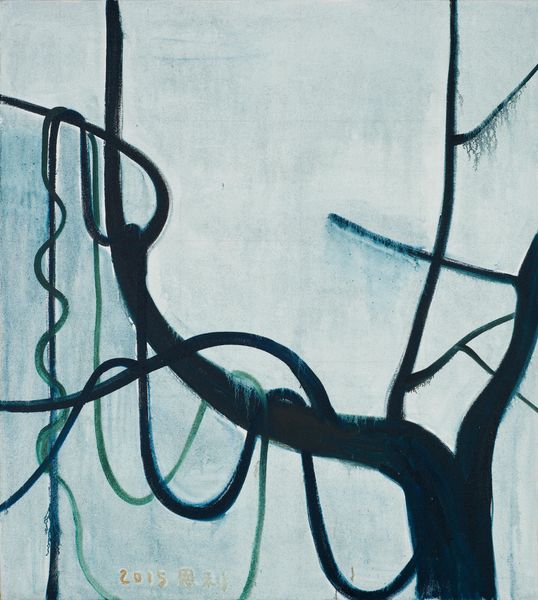
Zhang Enli
Four Seasons
8 March - 21 June 2015
Somerset
Selected images

The Water
2015

The Water (3)
2015

The Tree Stump
2015

The Branches (4)
2015

The Water (1)
2014

The Water (7)
2014

The Water (9)
2014
Installation views
Related Content
About the Artist

Zhang Enli
Using the outside world as a mirror, Zhang Enli documents the more prosaic aspects of contemporary life. He regularly works with everyday objects that he is instinctively drawn to, for example a piece of string, a hose, or even a marble ball from the floor of his studio. Zhang Enli often magnifies his subjects until a specific fragment of a scene is depicted, as if enlarged through the viewfinder of a camera.
Within his figurative works, the perspective of each painting is often skewed to heighten the drama of the object’s shape, or to enlarge its importance. Zhang Enli’s expressive lines and curves are influenced by traditional Chinese brush painting, but are always underpinned by the structure of his pencil-drawn grids. The muted tones and loose washes of paint make the objects seem removed, as if occupying a liminal reality where only the essence of the object is portrayed on the canvas.
In his series of installations, known as Space Paintings, Zhang Enli paints directly onto the walls of a room to create immersive, nostalgic environments. These range from the abstract, where color and gesture recall sights and sounds of a particular place, to more figurative reproductions. The scale, and the lack of a traditional frame, alters the relationship between viewer and work, demanding the viewer retraces the steps of the artist and relives his experience of this physical space.
Anchored in figuration with descriptive titles, Zhang Enli’s most recent paintings seek to capture the ‘essence’ of his subjects rather than their physical representation. Within these works, Zhang Enli projects his own concerns and recollections onto the canvas, fusing the real and the imagined in highly personal impressions.
'Sometimes, the obscured object also creates a trace with the passing of time. This is the origin of my recent abstract paintings. When I look at a wall, or sky, it is full of traces, and then I name these traces after someone; it becomes very interesting, it is visible yet invisible.’—Zhang Enli
Current Exhibitions
1 / 10















